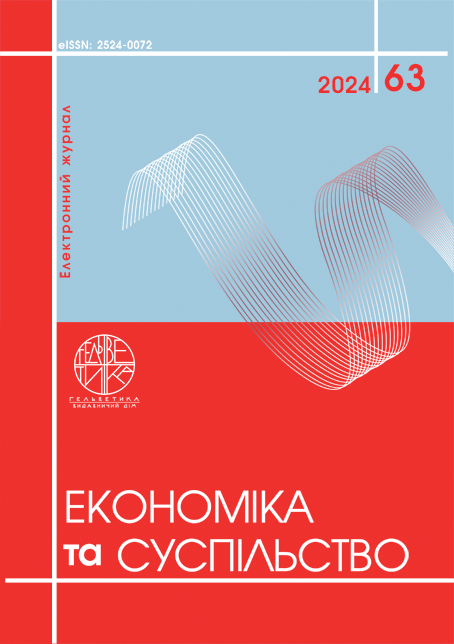THE IMPACT OF MACHINE LEARNING AND ARTIFICIAL INTELLIGENCE TECHNOLOGIES ON THE BEHAVIOR OF IT PRODUCT USERS
Abstract
The recent period of the fifth technological revolution, characterized by the widespread application of artificial intelligence (AI) across all sectors of the economy, presents new challenges and opportunities for users and IT product developers. Research demonstrates how AI transforms user behavior, particularly in the context of their interactions with digital products and services. The study investigates changes in user expectations and behavior regarding the personalization of interfaces and content, considering their individual preferences and interaction history. The results of this work aim to provide IT product developers, analysts, and product managers with valuable insights to form strategies that enable them to respond most effectively to changes in consumer behavior within the framework of the new economic order, leveraging the potential of AI. The development of machine learning and artificial intelligence (AI) is radically changing the landscape of IT products, prompting the transformation of user behavior within the framework of the fifth technological paradigm. The objective of this work is to analyze how AI not only enhances the personalization of user experience but also shapes new models of interaction between humans and technologies. Specifically, it examines the impact on user behavior through the automation of services, improved efficiency of interfaces, and changes in security patterns. The results of the analysis show that the integration of AI contributes to increasing consumer trust and loyalty, stimulating the development of economic models based on this technology. Integrating AI into the customer development process in the context of IT product user behavior systems accelerates the iteration cycle. AI can quickly process vast amounts of feedback and operational data, allowing for faster adjustments and enhancements of features based on user interactions. Research of scientific papers and real business cases shows that by focusing on user needs and continuously iterating based on user feedback, digital products can more effectively meet and exceed user expectations, thereby fostering greater engagement and satisfaction. The recent period of the fifth technological revolution, characterized by the widespread application of artificial intelligence (AI) across all sectors of the economy, presents new challenges and opportunities for users and IT product developers. Research demonstrates how AI transforms user behavior, particularly in the context of their interactions with digital products and services. The study investigates changes in user expectations and behavior regarding the personalization of interfaces and content, considering their individual preferences and interaction history. The results of this work aim to provide IT product developers, analysts, and product managers with valuable insights to form strategies that enable them to respond most effectively to changes in consumer behavior within the framework of the new economic order, leveraging the potential of AI. The development of machine learning and artificial intelligence (AI) is radically changing the landscape of IT products, prompting the transformation of user behavior within the framework of the fifth technological paradigm. The objective of this work is to analyze how AI not only enhances the personalization of user experience but also shapes new models of interaction between humans and technologies. Specifically, it examines the impact on user behavior through the automation of services, improved efficiency of interfaces, and changes in security patterns. The results of the analysis show that the integration of AI contributes to increasing consumer trust and loyalty, stimulating the development of economic models based on this technology.
References
Bostrom, Nick (2014). Superintelligence: Paths, Dangers, Strategies. Oxford: Oxford University Press.
Brynjolfsson, Erik, and Andrew McAfee (2014). The Second Machine Age: Work, Progress, and Prosperity in a Time of Brilliant Technologies. New York: W.W. Norton & Company.
Lee, Kai-Fu. (2018) AI Superpowers: China, Silicon Valley, and the New World Order. Boston: Houghton Mifflin Harcourt.
Marr, Bernard (2019) Artificial Intelligence in Practice: How 50 Successful Companies Used AI and Machine Learning to Solve Problems. Wiley.
Davenport, Thomas H., and Ronny Kohavi. (2018) "The Industrialization of Analytics." Journal of Business Analytics 1, no. 1 (2018): 29-38 pp..
Pérez, C. (2002). Technological Revolutions and Financial Capital: The Dynamics of Bubbles and Golden Ages. Cheltenham: Edward Elgar Publishing.
Copyright (c) 2024 Роман Зварич, Тарас Лісович

This work is licensed under a Creative Commons Attribution 4.0 International License.


